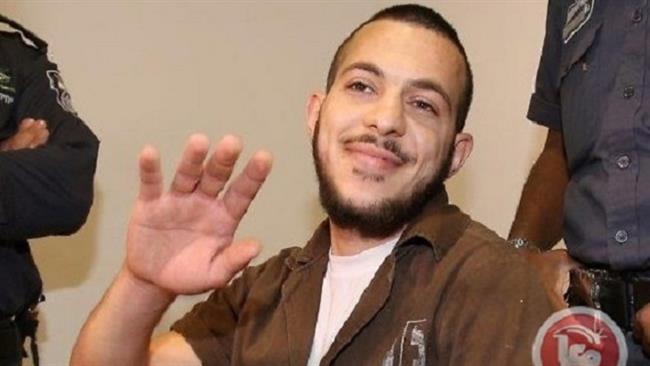
RNA - The Haifa District Court on Sunday approved a request by Israel’s Interior Minister Aryeh Deri to strip 23-year-old Alaa Zayud of his citizenship over his alleged involvement in a stabbing and vehicular attack in the vicinity of Gan Shmuel town on October 11, 2015, legal sources reported on Monday.
Zayud, whose mother is an Israeli citizen and his father is a Palestinian with permanent residence in the occupied territories, is from the Palestinian-majority town of Umm al-Fahm in northern Israel, and some eight months following the alleged attack was sentenced to 25 years in prison after he was convicted on four counts of attempted murder.
The young Arab-Israeli man can appeal the ruling. But if he fails in the appeal, he will lose his Israeli citizenship in October 2017.
At the time of the incident, Israeli authorities claimed that Zayud drove his car into a bus station on Route 65 near Gan Shmuel, inflicting serious injuries on an Israeli soldier and another trooper. They further claimed that he then got out of his vehicle and started stabbing the already critically wounded soldier and two others before being arrested..
On Sunday, however, Zayud rejected the allegations and said that he did not intend to carry out a terror attack and merely lost control of his car. “I didn't do anything. They want to make me into a terrorist. I don't know what they want from me. I'm not a terrorist,” he shouted at the courtroom.
Adalah, an Arab-Israeli rights group, and the Association for Civil Rights in Israel said in a joint statement that they would appeal the verdict to the Supreme Court. Adalah separately asserted that the ruling was the first court decision of its kind.
The court verdict deviated “from the principles of international law, and from the general rule according to which an individual cannot be stripped of (their) citizenship and left stateless,” the joint statement further said.
Furthermore, Sawsan Zaher, an attorney for Adalah, described the provocative move a “dangerous” one, adding that the Sunday verdict had been a clear example of Tel Aviv’s discriminatory policies targeting Palestinian citizens of Israel.
“Jewish Israelis have also committed similar acts. But no one demands that their citizenship be revoked. This decision sets a precedent that (Israeli) courts can revoke the citizenship of any Arab who commits a criminal act,” she went on to say.
About 1.4 million Arab Israelis, making up some 18 percent of Israel’s population, live within the occupied territories. They are the descendents of Palestinians, who remained on their land even in the aftermath of the creation of the Zionist regime in 1948.
The occupied Palestinian territories have witnessed new tensions ever since Israeli forces introduced restrictions on the entry of Palestinian worshipers into the al-Aqsa Mosque compound in East Jerusalem al-Quds in August 2015.
More than 300 Palestinians have lost their lives at the hands of Israeli forces in the ongoing tensions since the beginning of October 2015.
The Tel Aviv regime has tried to change the demographic makeup of Jerusalem al-Quds over the past decades by constructing settlements, destroying historical sites and expelling the local Palestinian population. Palestinians say the Israeli measures are aimed at paving the way for the Judaization of the city.
The al-Aqsa Mosque compound is a flashpoint Islamic site, which is also holy to Jews. The mosque is Islam’s third holiest site after Mecca and Medina in Saudi Arabia.
847/940